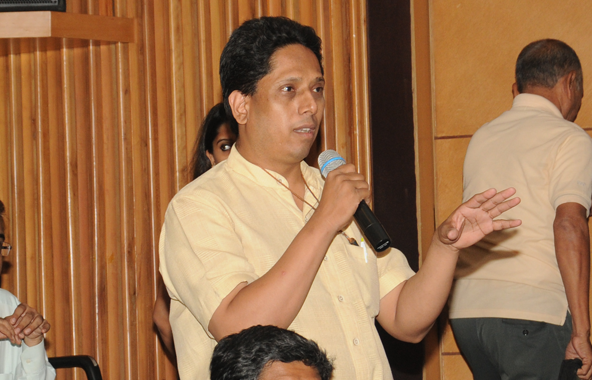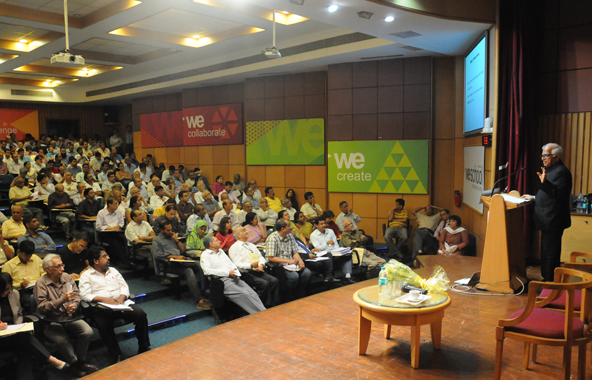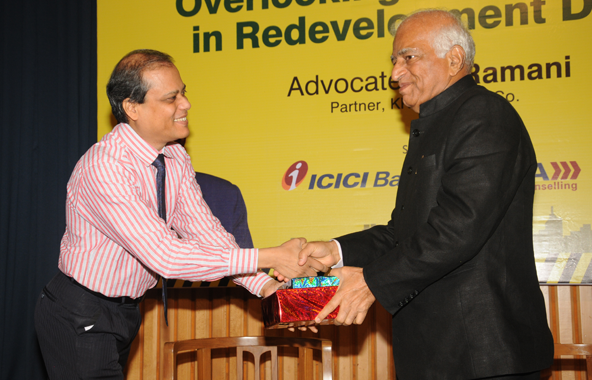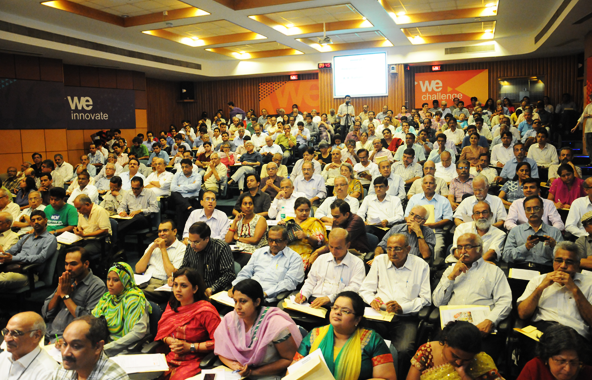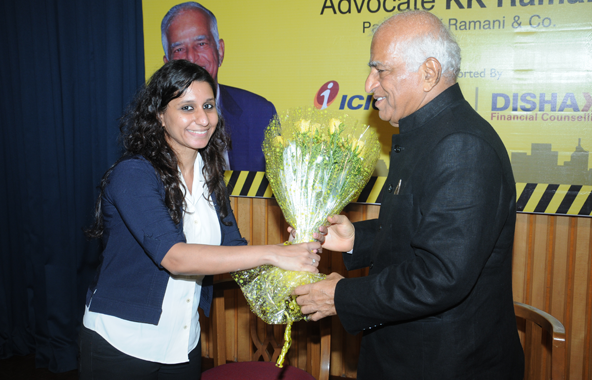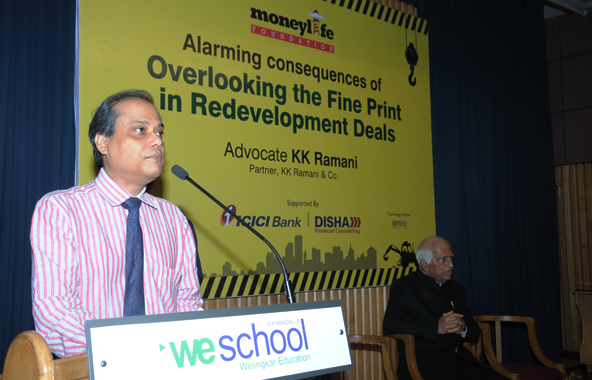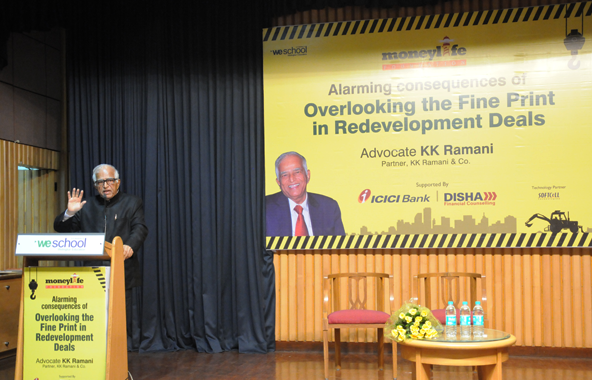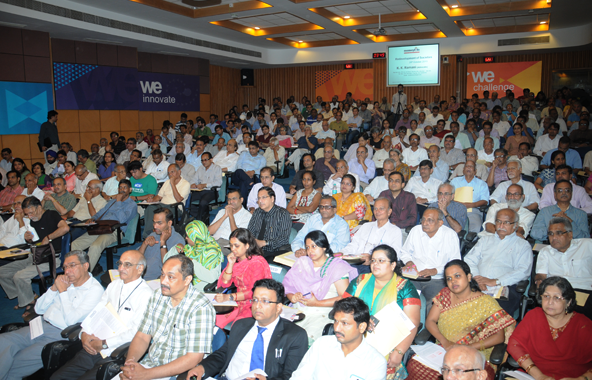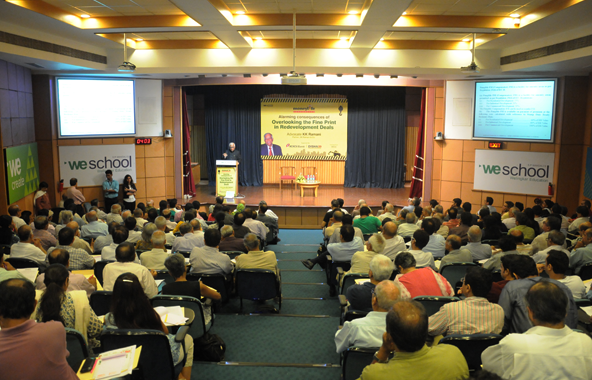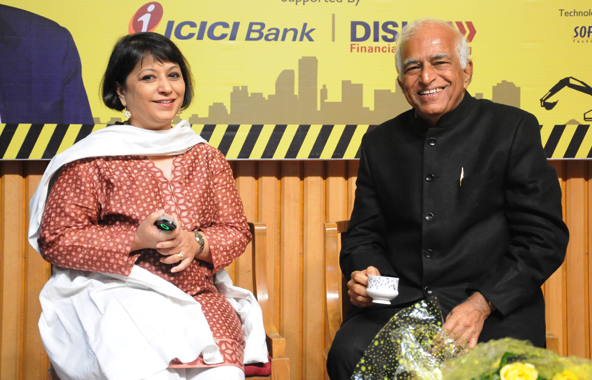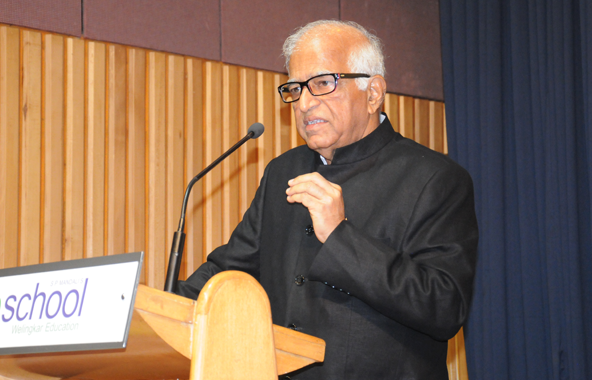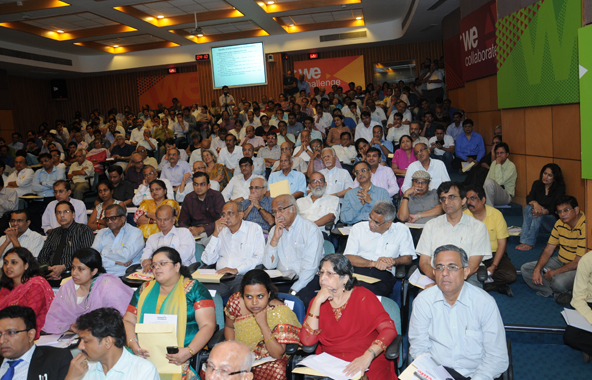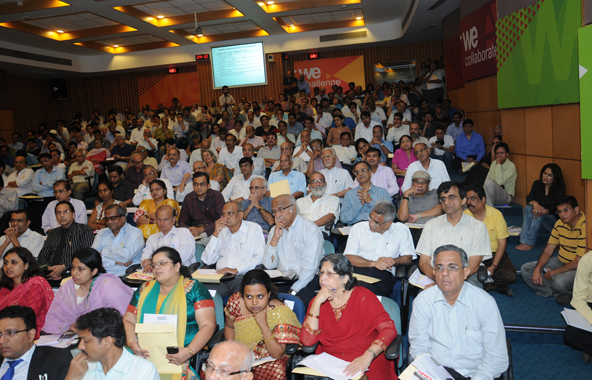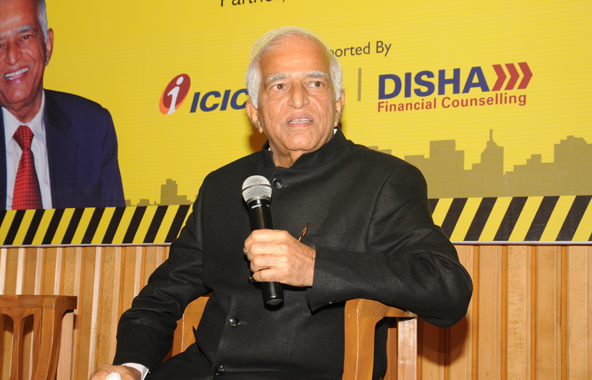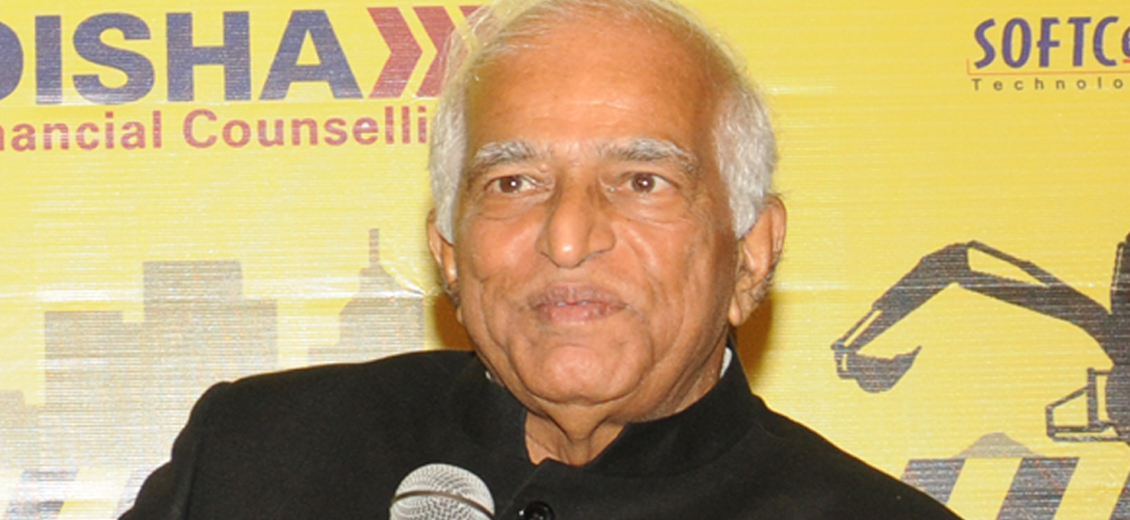
Many builders have not conveyed the title of properties to the housing societies in the hope of availing more floor space index (FSI) that may become available, or the benefits accrued to them in case the property is redeveloped. The Supreme Court order to demolish unauthorised floors at Mumbai’s Campa Cola compound sent shock waves through flat owners.
Six societies were formed in the Campa Cola compound and despite requests made to the builders for conveyance, the same was not done. At an event organized by Moneylife Foundation, Advocate KK Ramani, who has authored several books on property laws, explained the importance of ‘Deemed Conveyance’, TDR (transferable development rights), redevelopment and other issues and the laws governing them. The session received a tremendous response and the auditorium was packed to capacity.
In Mumbai, construction activities are regulated by mainly 2 Acts: Maharashtra Regional Town Planning Act 1966 and D.C. Regulations 1991. The Maharashtra government came out with a special law to enable co-operative housing societies (CHS) get deemed conveyance. A deemed conveyance is a document executed to transfer title of land and building in name of the housing societies, explained Mr Ramani. After receiving complaints against builders for not transferring or conveying the property to the CHS, the concept of deemed conveyance was introduced in Maharashtra Ownership Flat Act (MOFA) amended – on 25 February 2008. The rules were effective from 27 September 2010. However, in Mumbai, where there are more than 23,000 CHS, only 87 have been able to get their deemed conveyance due to several flaws in the new system.
MOFA regulates the construction of property, once the conveyance is done the Maharashtra Cooperative Society Act takes over, said Mr Ramani. Under MOFA the definition of flat is very wide. A builder in the past has sold common areas and amenities. There have been cases where the builder has sold terraces and car parking. Judgements in the past have gone in favour of the society. Mr Ramani said that a garage is an attachment to a flat and cannot be sold seperately Developers have been refusing to issue the certificate to housing societies across the state. In Maharashtra, there are 88,000 such proposals pending for last several decades. Mr Ramani who has been appointed by all the six societies in Campa Cola Compound to procure a deemed conveyance for them, pointed out that there are many legal issues that would arise out of the demolition. For instance, he says, only 96 flats will be demolished, so who will have rights to the remaining FSI after the destruction? If the cooperative societies do not have the title to the land, how can they submit plans for fresh development to the municipal corporation? Mr Ramani outlined the procedure for a society to obtain deemed conveyance if the conveyance certificate is still not yet received.
Earlier in the session, Mr Ramani gave an over brief of the development of Mumbai and the history of Flat System in Mumbai since 1941. Along with the pace of construction and development, existing housing societies were expanding and thus came the need for redevelopment. Many housing societies which have grown old, the cost of reconstruction has gone beyond the reach of many societies, hence, the need for developers. But when one goes for redevelopment, they need to read the fine print very carefully.
Mr Ramani spoke at length on the different aspects of a redevelopment deals. He spoke about the minimum quorum required for the approval of a developer, the period of development, the security from the developer, alternate accommodation and registration. He cautioned the audience that only after the building is redeveloped, new members should be added.
The session was followed by a lively question and answer session.


